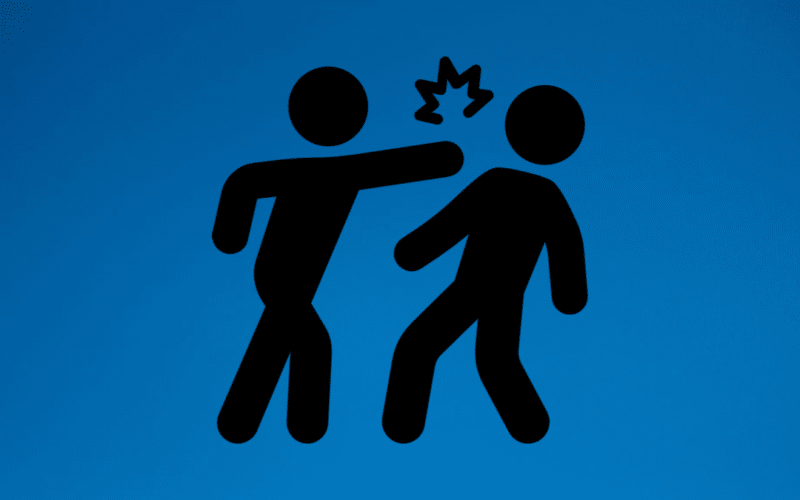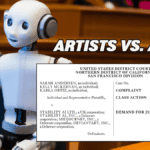Many overworked or underappreciated law firm associates dream of being offered a job by a client. That dream probably doesn’t include getting sued for going in-house.
There are a lot of ways for a lawyer in private practice to lose a client. Most of them are fairly mundane: do lousy legal work, send unexpected bills, don’t return phone calls. But if you’re looking for something on the splashier side, you could always try suing the client and the client’s new general counsel, who happens to be your former associate. I’m pretty sure that would do the trick too.
Last week, San Diego law firm Slate Law Group filed a twenty-count federal court complaint against its former associate Derek Dahlin, the firm’s (presumably now former) startup client ClickUp and several of ClickUp’s officers. The complaint alleges three separate claims of copyright infringement as well as numerous other transgressions ranging from misappropriation of trade secrets to fraud to breach of contract.
The Allegations
According to the complaint, Dahlin joined Slate in March 2020, first as an independent contractor and then a month later as a full time associate. While he was with the firm, Dahlin worked on transactional matters for ClickUp and began “building a working relationship and rapport with ClickUp’s officers.” Hmm. Sounds sketchy already.
After Dahlin worked on its matters for two months, ClickUp offered him a job as its in-house counsel. Some associates work for clients for two years without the client even knowing their names. So good on Dahlin. You know, except for the getting sued part.
Dahlin then approached Slate’s managing partner Kelly DuFord (who’s also serving as Slate’s counsel in the lawsuit) to let her know about the job offer. DuFord “reminded Dahlin that ClickUp was a Slate client,” and she told him that under the non-disclosure and confidentiality agreement he’d signed with the firm, he “was not permitted take on ClickUp as a personal client or depart to ClickUp to become its in-house counsel.”
Apparently ignoring DuFord’s legally questionable directive, Dahlin kept negotiating with ClickUp. He also allegedly provided ClickUp with certain “documents and templates” that Slate contends are its copyrighted work product. It’s not clear from the complaint whether the documents Dahlin is accused of providing were the ones that ClickUp was playing Slate to create.
In its lawsuit, which was filed in the Southern District of California, Slate claims that “[b]y resigning from Slate to work with ClickUp, Dahlin effectively breached the terms of his employment with Slate, as outlined in the NDA.” That document provided that information related to Slate’s client list and business strategies were the firm’s trade secrets. In addition to using this information outside of firm business, Slate asserts that Dahlin engaged in prohibited “competitive consulting or employment” by taking his new job.
The Law
So, where to begin with this one? Since we’re a copyright blog, let’s start with the claims for “Copyright Infringement,” “Vicarious Copyright Infringement” and “Contributory Copyright Infringement.” A few things stand out.
First, the complaint alleges the infringement of “copyrighted contracts and other work-product” in “violation of the common law.” I hate to be the bearer of bad news, but common law copyright was pretty much abolished by the new Copyright Act. And by new, I mean the one passed in 1976.
Second, copyright owners need to register their works with the Copyright Office before filing a lawsuit. Slate doesn’t identify the works it claims were infringed, and doesn’t allege that those works were in fact registered. I’m guessing they weren’t.
If Slate could get past these hurdles, the case might present some interesting copyright issues. Does Slate own a copyright in its template forms and contracts? Theoretically, the firm could own a “thin copyright” in the documents, but not in boilerplate provisions and not if the contracts were lifted from existing forms it didn’t create. And while a law firm may own the copyright in an employee’s work product as a work-made-for-hire, this likely wouldn’t be the case for documents created by independent contractors or non-employee partners.
What about the claim that Dahlin violated his confidentiality agreement and NDA by accepting employment with a firm client? This one’s going to be tough for Slate too. California, where Slate is based, is one of the strictest states in the country when it comes to agreements not to compete. Basically, they’re void except in narrow circumstances, such as when the owner of a business agrees not to carry on a similar business after selling the company and its goodwill.
Post-termination restrictive covenants may also be enforceable to prevent a former employee from revealing a company’s trade secrets to competitors. But these types of provisions need to be narrowly tailored. Slate’s complaint isn’t at all clear about what kind of of confidential trade secrets Dahlin is accused of learning from Slate and giving to ClickUp.
The allegation that Dahlin took forms and templates belonging to Slate, if proven, is potentially more problematic. A couple of years ago, a lawyer in St. Louis was held in contempt, jailed for two days and ordered to pay more than $775,000 to her law firm after taking its electronic files before resigning. But that was an extreme case, as the lawyer admitted to taking 22,000 documents from her former firm. In other words, we’re not talking about a few form files or a closing binder.
Putting aside a situation in which an associate steals law firm property, firms need to remember that clients don’t “belong” to the law firms they hire, and associates don’t “belong” to the law firms who hire them. This seems particularly obvious in a situation where, per Slate’s complaint, ClickUp had been a client of Slate’s for less than a year and Dahlin had worked at the firm for less than three months.
While it may not feel good to lose a promising associate to a client, it’s important for law firms to take the long view in these situations. My firm has had several lawyers who’ve left to go work for clients over the years. While we’re usually sorry to see them go, it can be a good opportunity to further solidify the client relationship. Of course, this assumes that we’re not suing the associate, the client, and the company’s entire C-suite. I’m no expert, but I’m guessing that’s going to put a damper on future business prospects.
What do you think about this new lawsuit? Let me know in the comments or on our socials.






